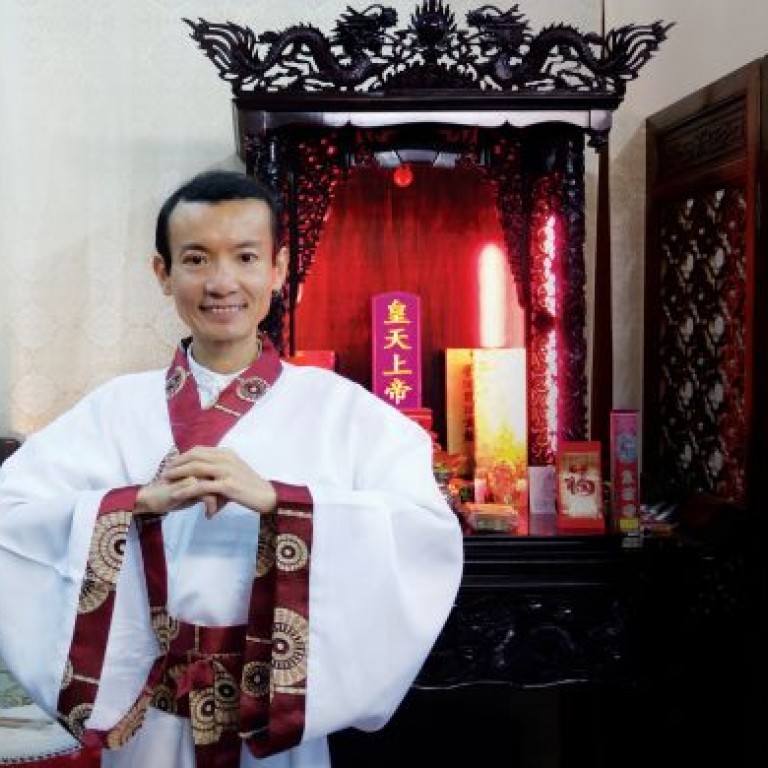
So You Think You Know Cantonese?
Translator and etymologist Dr. Chapman Chen is putting together a book, “A Comprehensive Dictionary of Orthodox Cantonese Characters and Phrases,” which explores the history of Cantonese that we use today.
He tells Adrienne Chum about the elegance of the language and the need to keep things local.
HK Magazine: So what’s the book about?
Chapman Chen: Cantonese has about 3,000 years of history, so I’m making a comprehensive dictionary with about 1,500 entries. The purpose of the dictionary is to prove that Cantonese is an elegant language—rather than a colloquial dialect, as Beijing claims. Many Cantonese phrases come from Chinese classics. They have an extremely ancient origin, so the correct written forms are often forgotten. Modern Cantonese speakers have invented informal characters for them, which look uncouth. The dictionary will show the correct way to write them.
HK: What’s so great about Cantonese anyway?
CC: Cantonese reflects orthodox Chinese culture, and is a carrier of Hong Kong’s identity. Hong Kong is to China what Ukraine is to Russia. Putonghua is an artificial language imposed by the Chinese Communist Party, not a naturally evolved language.
HK: What inspired you to put this book together?
CC: We Hongkongers are trying to preserve Cantonese, just as the Scots are trying to preserve their language, and the Barcelonans are trying to preserve Catalan. Putonghua is actually the colloquial language—for example, to eat in Cantonese is sik faan (食飯), which is classical Chinese—but in Putonghua, they say chī fàn (吃飯), which is actually a northern colloquialism. Cantonese inherited final consonants from Tang Dynasty speech, so reading old poems in Cantonese sounds much better, more musical. Putonghua doesn’t have these sounds.
HK: Why not?
CC: Putonghua was seriously contaminated by barbarians, by the languages of the Mongolians and the Manchurians. Their phonemes are very lacking. An example is hap (盍), to close—Putonghua reads it as hé, which doesn’t actually close your mouth. Many four-character idioms have also been preserved through our language, but are very difficult to say in Putonghua.
HK: Do you think there’s pressure for Hong Kong to switch from Cantonese to Putonghua?
CC: The government says they don’t force schools to teach Putonghua, but provides many millions of dollars to support Putonghua education. The Education Bureau encourages schools to teach Chinese classes in Putonghua and to adopt it as the medium of instruction—schools get subsidies. Linguist Robert Bauer conducted a study showing that currently more than 70 percent of primary schools teach in Putonghua, and at least 25 percent of secondary schools do. He estimates that in 10 years, Cantonese will become a sub-class and sub-culture language, similar to how it is in Guangdong. So I need to make this dictionary to save the language!
HK: What should people do about it?
CC: To be clear, there is no problem with learning Putonghua, but we are against using it as the medium of instruction. We need to educate parents too: Some parents think that learning Putonghua as the main language will give their kids an advantage in academics or when looking for work, but it’s not true. We need to give priority to and protect local interests.
HK: How do you feel about the way Cantonese has evolved in recent years?
CC: Hong Kong does not need to follow China in everything; we don’t need to adopt northern colloquialisms and slang in our writing. And yet, people have been using them. Of course, young people are also using “lazy tones”—replacing ng with n, things like that.
HK: So is Cantonese a language, or a dialect?
CC: It’s definitely a language, not a dialect.
Dr. Chen collaborates with cultural preservation charity C for Culture. For more information on supporting the dictionary, visit facebook.com/cforculture or email [email protected].

